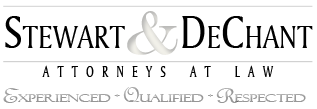Settlement
I. What problems are presented when you attempt to bring a malpractice claim and your client has already settled his underlying claim?
II.
A. Schneider, Smeltz, Ranney & Lafond, P.L.L. v. Kedia, 154 Ohio App.3d 117, 2003-Ohio-4567, 796 N.E.2d 553 (8th Dist.).The Court of Appeals said as a matter of law the attorney did not breach any duty to the client where the firm gave the client a copy of the agreement before he signed it and the client affirmed that he read the agreement.
The underlying facts in Kedia were that the settlement agreement had terms different than what the client told his lawyer he would agree to. That is a different issue than Environmental.
Parties to a contract are presumed to have read and understood them and that a signatory is bound by a contract that he or she willingly signed. Preferred Capital, Inc. v. Power Eng’g Group, Inc., 112 Ohio St.3d 429, 2007-Ohio-257, 860 N.E.2d 741.
The defendant’s position be if you sue because the settlement is inadequate that you have to show what you would have won in the underlying trial and it has to be more? Consider a alternative approach if the case was poorly developed which is show the development of the case was not adequate so the defendant’s underlying liability was not adequately presented and can’t be now because of the loss of witnesses, documents, time and you can’t develop the case now for those reasons or others.
An alternative to that approach is show the development of the case was not adequate so the defendant’s underlying offer would have to be more or they would have paid whatever sum of money you are claiming is owed over and above the settlement amount.
Fraud
A. A representation, or where here is a duty to disclose, concealment of fact.
1. Material to the transaction at hand.
2. Provide information with knowledge of its falsity or with such other disregard and recklessness as to whether it is true or false that knowledge may be inferred.
3. With the intent of misleading another and to relying upon it.
4. Justifiable reliance upon the representation or concealment.
5. A resulting injury proximately caused by the reliance.






